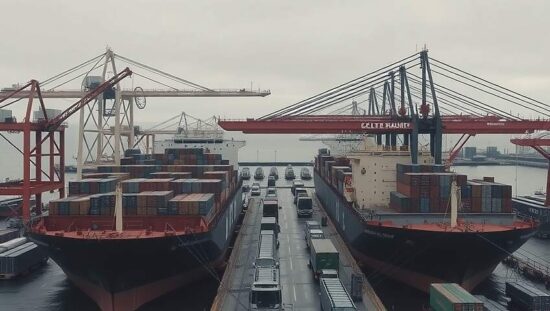The European Commission has proposed a significant expansion of safeguard tariffs on steel imports, signaling a hardening stance against global overcapacity and a renewed emphasis on European industrial sovereignty. The proposal, unveiled Tuesday, would reduce duty-free import quotas by 47%, slashing the allowance from current levels to 18.3 million tonnes annually. Any steel entering the EU beyond this diminished quota will now be subject to a 50% tariff – a doubling of the previous rate.
The move, framed as a necessary response to distortions in the global steel market, is intended to protect European steel producers and safeguard a strategically vital industrial sector. Commission President Ursula von der Leyen argued the measure is crucial, stating, “The worldwide overcapacities are harming our industry”. She emphasized a commitment to collaboration with “like-minded non-EU countries” to fortify the bloc’s position and to foster a more equitable global trade environment while acknowledging the need to operate within the parameters of World Trade Organization (WTO) rules.
The proposal has sparked immediate debate, highlighting a tension between advocating for a rules-based international trading system and acting decisively to secure Europe’s economic security. While the Commission insists the tariffs will be implemented in accordance with international law, critics question the precedent set by such protectionist measures and their potential repercussions for trade relationships with key partners.
Executive Vice-President Stéphane Séjourné, responsible for industrial strategy, underscored the severity of the situation, stating, “Speaking of a strong Europe makes no sense if we are no longer able to manufacture the body of a car or the armor of a tank”. His remarks explicitly evoked the imperative of preserving European industrial capabilities, raising concerns about potential vulnerabilities that could affect defense and automotive industries.
The Commission also acknowledged the human cost of the steel crisis. Trade Commissioner Maros Šefčovič pointed to the loss of approximately 30,000 jobs in the European steel production sector since 2018, attributing the decline to practices of export subsidies and market closures employed by other nations. This reinforces a narrative of unfair competition compelling a reactive defense of European interests.
The proposal now faces scrutiny and negotiation within the European Parliament and the European Council. While the Commission presents this expansion as necessary for the long-term health of the EU steel industry and broader European economic security, it remains to be seen whether it will be approved in its current form and what impact it will have on Europe’s relationships with its global trading partners. The move exposes a widening chasm between the ideals of free trade and the realities of geopolitical competition and industrial resilience.





